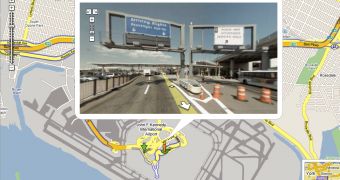The four terrorists who were recently arrested before they managed to attack the John F. Kennedy International Airport used Google Earth to get more information on the location. It all started from Abdul Kadir, the leader of the group, who encouraged the other members to use Google's downloadable application to obtain detailed photos with the airport as well as distances and other information about the maps. According to The Sydney Morning Herald, Robert Murrett, the director of the National Geospatial-Intelligence Agency, sustained that the organization might be interested in blocking some high-resolution photos displayed by Google Earth.
"If there was a situation where any imagery products were being used by adversaries to kill Americans, I think we should act. I could certainly foresee circumstances in which we would not want imagery to be openly disseminated of a sensitive site of any type," he said according to the same source.
Google tried to defend itself by mentioning some other similar products that are also offering high-resolution photos with most of the US locations. Beside Google Earth, Yahoo's Maps and Microsoft Live Maps are also offering detailed pictures with US towns. "Additionally the imagery in Google Earth is not real-time but rather anywhere between six months and three years old. Indeed, anyone who flies above or drives by a piece of property can obtain similar information," the company said as The Morning Herald reported.
This is not the first time when Google's satellite imagery provider is involved into terrorist action. Back in January, some terrorists were using Google Earth to organize attacks against the UK troops located in Basra. Because it was quite an important security issue, the parent company Google replaced the photos with older ones, captured before the departure of the army in the area.
Recently, Google also debuted Street View, a special function of Google Maps that allows users to view street-level panoramas with several US cities. Although it was released last week, the function already raised privacy concerns as some users claimed that they were able to view private stuff from their houses.

 14 DAY TRIAL //
14 DAY TRIAL //